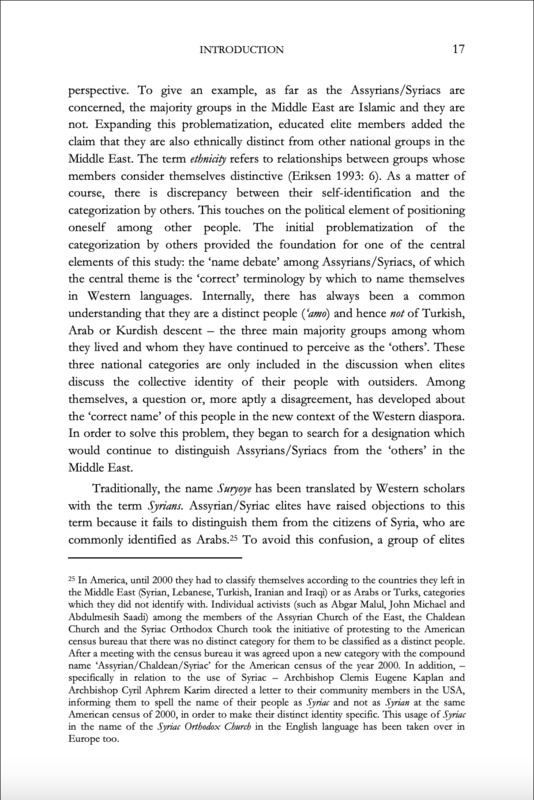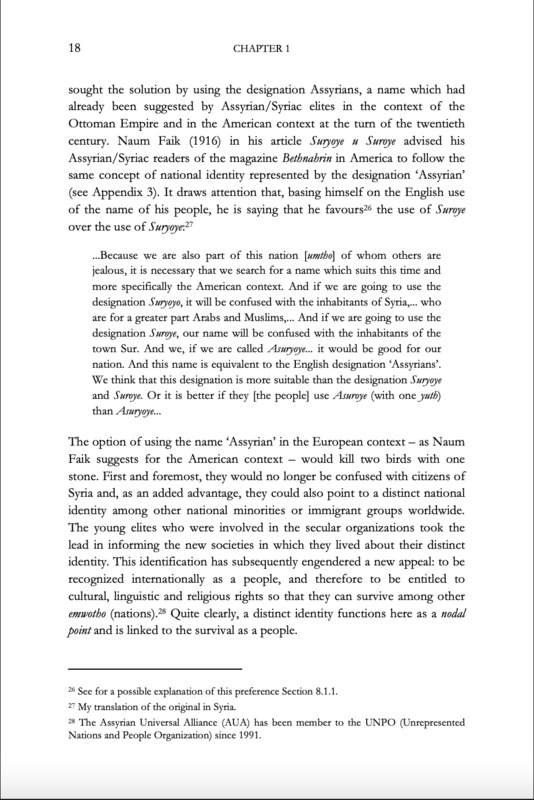-
Title
-
Hostages in the homeland, orphans in the diaspora : identity discourses among the Assyrian/Syriac elites in the European diaspora
-
Creator
-
Naures Atto
-
Date
-
2011
-
Description
-
Atto explains that these communities historically self-named in their own Aramaic as Suroye/Suryoye (modern/classical Syriac). Neighbors called them Suryani (Arabic, Kurdish) and Süryaniler (Turkish). Western scholars long translated Suryoye as “Syrians,” a rendering many Assyrian and Syriac elites rejected because it confused them with the citizens of Syria. To avoid that confusion, elites in the late Ottoman and early American contexts promoted “Assyrian.” Atto cites Naum Faik (1916) urging readers of Bethnahrin in America to adopt the national label Assyrian in English, precisely to distinguish themselves from “Syrians.”
Atto frames this within a broader name debate. In diaspora settings, elites first insisted they were not Turks, Arabs, or Kurds; then many stated they were not Othuroye (Assyrians) but Suryoye; later, the alternative label was articulated as Syrianer or Arameans. Choosing Assyrian in Europe and the United States, she argues, “kills two birds with one stone”: it prevents confusion with Syrians and signals a distinct national identity among immigrant minorities. Young, secular elites advanced this usage, anchoring claims for international recognition as a people with cultural, linguistic, and religious rights.
-
Language
-
English
-
Publisher
-
Hostages in the Homeland, Orphans in the Diaspora: Identity Discourses among the Assyrian and Syriac Elites in the European Diaspora, Naures Atto, 2011, pp. 17–18.
-
scholarlypublications.universiteitleiden.nl
-
Subject
-
Aramean Diaspora




